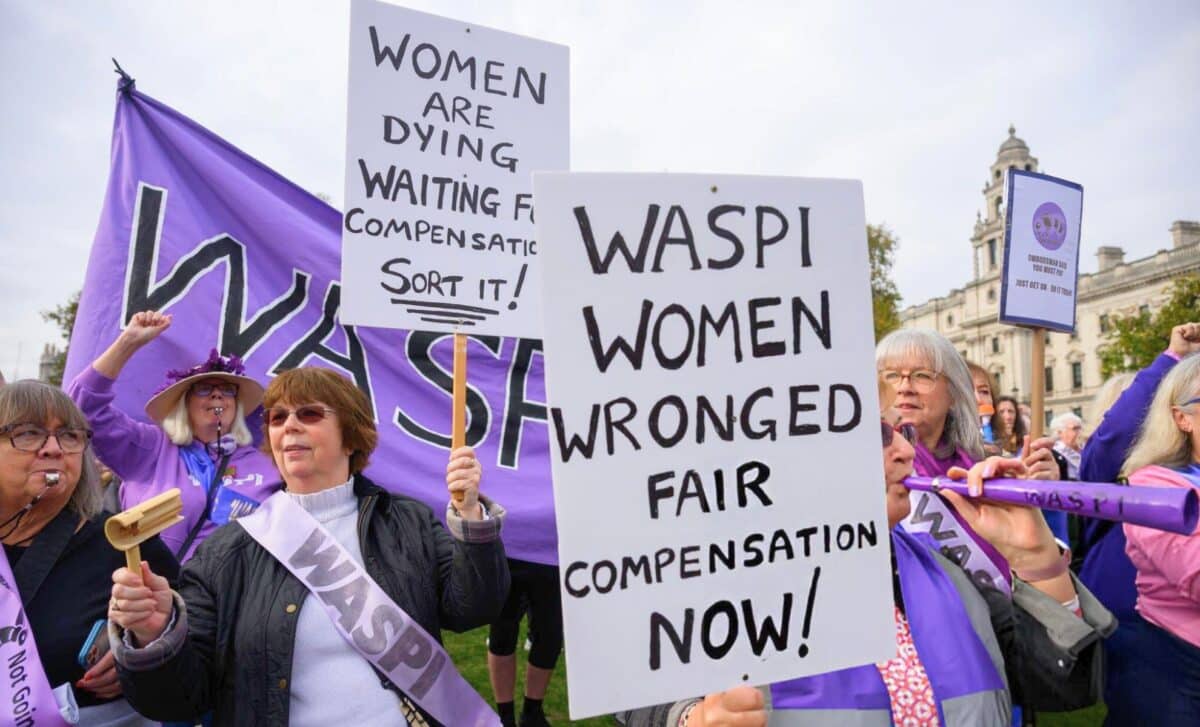In a decision that has caused significant controversy, the UK government has announced it will not offer compensation to the millions of WASPI Women born in the 1950s affected by changes to their State Pension age.
Work and Pensions Secretary Liz Kendall made the announcement to MPs in Parliament on Tuesday. Despite the findings of the Parliamentary and Health Service Ombudsman (PHSO), which called for financial redress, the government has rejected compensation claims.
Kendall explained that the government reviewed the Ombudsman’s report, which detailed issues stemming from the failure of the Department for Work and Pensions (DWP) to adequately notify women of changes made between 1995 and 2004.
A Controversial Rejection of WASPI Women Compensation
In her statement, Kendall explained that the PHSO’s investigation focused on a series of administrative failures, particularly a 28-month delay in notifying women born in the 1950s about changes to their pension age.
The Ombudsman’s final report, published on March 21, urged the government to offer compensation, citing injustice caused by this delay. However, the government stood by its stance, claiming that despite the errors, most women were already aware of the changes.
Kendall emphasized that 73% of women aged 45-54—the target demographic—were aware that their pension age had increased. According to the government’s findings, this awareness negates the need for compensation, despite the DWP’s own maladministration.
The Maladministration Acknowledged
Kendall admitted that the DWP’s failure to send letters on time between 2005 and 2007 was an instance of maladministration. However, she argued that this did not result in direct financial loss to the women impacted, stating: “We accept that the 28-month delay in sending out letters was maladministration, and on behalf of the Government, I apologise.”
Nevertheless, she dismissed the Ombudsman’s findings regarding injustice, arguing that the awareness of most women diminished the significance of the delay. Despite the clear administrative failure, the government remains firm in its refusal to offer financial compensation.
The Battle for Fair Compensation Continues
The Women Against State Pension Inequality (WASPI) campaign has been at the forefront of the fight for compensation. Following Kendall’s announcement, Angela Madden, the Chair of WASPI, condemned the government’s refusal to act.
She expressed disbelief at the government’s decision, stating: “The Government has today made an unprecedented political choice to ignore the clear recommendations of an independent watchdog which ordered ministers urgently to compensate WASPI women nine months ago.”
Madden continued, “This is a bizarre and totally unjustified move which will leave everyone asking what the point of an ombudsman is if ministers can simply ignore their decisions.”
Madden further criticized the government’s stance, comparing it to decisions made by Boris Johnson and Donald Trump, saying, “It feels like a decision that would make the likes of Boris Johnson and Donald Trump blush.”
Political Fallout and Growing Public Outrage
The government’s refusal has been met with strong opposition from MPs, many of whom are vocal supporters of WASPI’s cause. The government’s decision not only challenges the Ombudsman’s authority but also ignores the financial and personal hardship experienced by these women. Critics argue that the government is putting financial concerns ahead of justice, despite public pressure and the overwhelming support of MPs for compensation.
The Government’s Stubborn Stance
In defense of the government’s decision, Kendall pointed out the high administrative costs and logistical challenges involved in creating a compensation scheme for the 3.5 million women affected.
She explained that setting up a compensation scheme would require substantial resources and time to process claims. Even if a flat-rate compensation scheme was implemented, providing £1,000 to £2,950 per woman, the total cost could reach between £3.5 billion and £10.5 billion.
Kendall reiterated that, given the high level of awareness among the women involved, such a scheme would not be fair or justifiable.
You can read the full report from the DWP on the GOV.UK website here.









